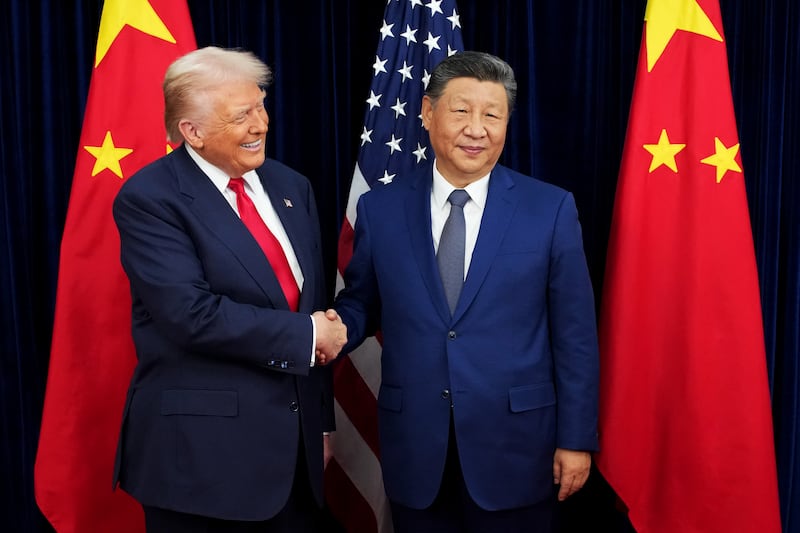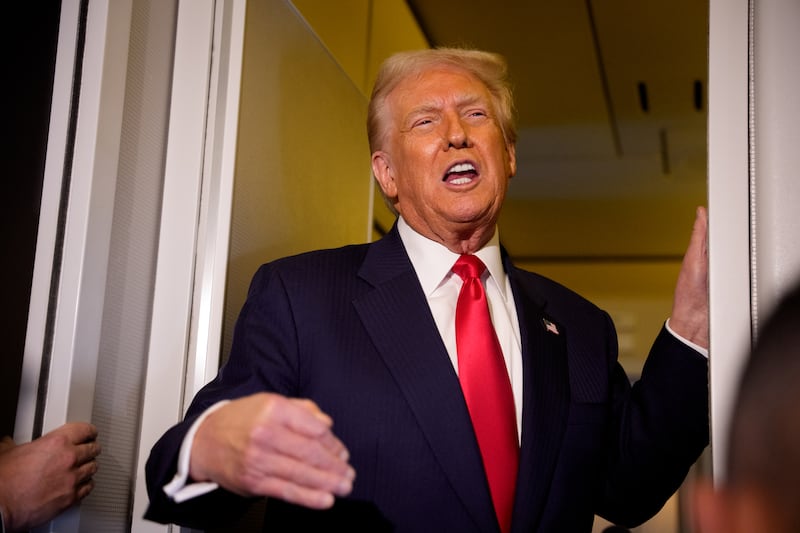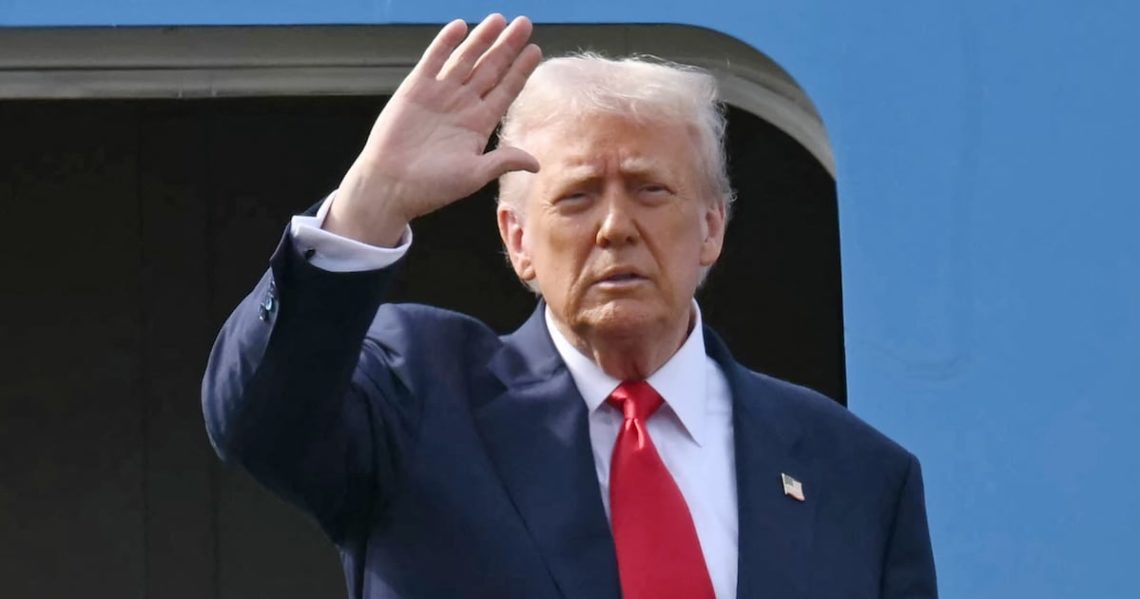President Donald Trump has praised his “amazing” negotiations with Chinese President Xi Jinping, even though Beijing appears to have walked away with the upper hand.
The 79-year-old met his Chinese counterpart on Thursday in South Korea as the U.S. and China try to patch up the trade war triggered by Trump’s tariffs and ease rising tensions between the two economic superpowers.
Speaking to reporters aboard Air Force One, Trump rattled off a list of vague agreements he claimed the two leaders reached, touching on issues surrounding soybeans, fentanyl, rare earth minerals, and tariffs, while flying nearly 7,000 miles back to Washington.
While the deals are still being ironed out and nothing has been officially signed, the early signs suggest the best-case scenario is China merely returning to the status quo while Trump gives up leverage.

Trump touted China’s agreement to pause, for one year, new restrictions on rare earth exports that it announced earlier this month. Yet Beijing is still keeping in place the strict limits it imposed in April in retaliation for Trump’s tariff plans that have severely restricted the supply of minerals crucial for everything from smartphones to military hardware.
Trump also said he’d reduce tariffs on Chinese goods from 57 percent to about 47 percent because Xi agreed to “work very hard” to stop fentanyl flowing into the U.S.
How China would clamp down on the fentanyl trade, and under what timeframe, was not disclosed by the U.S. president. China’s Ministry of Foreign Affairs also did not refer to an agreement about fentanyl in a statement about Trump’s meeting with Xi.
Another win Trump claimed was China agreeing to resume buying “tremendous amounts” of U.S. soybeans after the Asian country started getting them from South America in retaliation for Trump’s sweeping tariffs,
China vowing to resume buying soybeans from the U.S. simply marks a return to where the two countries were before Trump announced his “Liberation Day” tariffs, rather than an improved deal for the U.S.
Jonathan Czin, a fellow at the Brookings Institution and former CIA analyst on China, said Beijing emerged from the talks stronger because Trump was never clear about what he wanted from them beyond saving face.
“It’s an approach that can safely be described as tactics without a strategy,” Czin told The New York Times. “Ostensibly, the goal was to address some of the meaty trade issues that had long bedeviled the relationship. Instead, [China] has successfully orchestrated a game of ‘whack-a-mole’ for the Trump Administration.”
Trump also posted on Truth Social that China had begun the process of “purchasing American Energy,” potentially involving oil and gas from Alaska. In the same post, the president also hinted that such a deal may not even take place.
“Chris Wright, Doug Burgum, and our respective Energy teams will be meeting to see if such an Energy Deal can be worked out,” Trump wrote.

Ja Ian Chong, a political scientist at the National University of Singapore, cautioned that many of Trump’s agreements with China following his global trip may never materialize.
“Maybe I’m jaded because I’ve seen this movie too many times, but these are issues that are relatively easy to roll back and also to accuse the other side of bad faith,” Chong told The Times.
The Daily Beast has contacted the White House for comment.
The post Trump, 79, Humbled by Rivals After Flying Around World appeared first on The Daily Beast.




